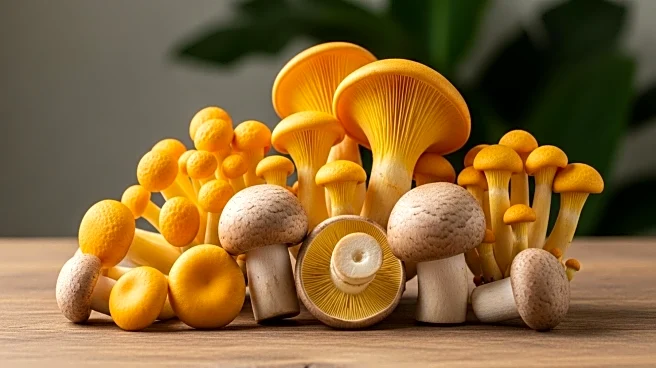What's Happening?
Punjab Agricultural University (PAU) has developed a technology to create Vitamin-D enriched mushroom powder, addressing the widespread Vitamin D deficiency affecting nearly 70% of the population. The process involves converting UV-treated button and oyster mushrooms into a shelf-stable powder that is rich in Vitamin D, protein, fiber, and essential minerals. PAU has signed a Memorandum of Agreement with Guru Kripa Enterprises for the production and marketing of this innovative powder. The technology was developed by Dr. Sonika Sharma and Dr. Shammi Kapoor, offering a natural alternative to synthetic supplements.
Why It's Important?
This development is significant as it provides a natural, food-based solution to combat Vitamin D deficiency, which is prevalent in many populations. The enriched mushroom powder offers a safe alternative to synthetic supplements, which can have side effects. Additionally, the initiative supports economic growth by creating new opportunities for agri-based entrepreneurship and addressing the issue of mushroom wastage during peak seasons. As consumer preferences shift towards functional and natural foods, this innovation aligns with market trends and sustainability goals.
What's Next?
The agreement with Guru Kripa Enterprises marks the beginning of commercial production and marketing of the Vitamin-D enriched mushroom powder. This could lead to increased availability of the product in the market, potentially improving public health outcomes. The initiative may also inspire further research and development in food-based nutritional solutions, encouraging other institutions to explore similar technologies.
Beyond the Headlines
The development of this technology highlights the potential for agricultural innovation to address public health issues. It underscores the importance of interdisciplinary collaboration between food science and nutrition experts in creating impactful solutions. The project also reflects a growing trend towards sustainable food processing methods that reduce waste and enhance food security.










